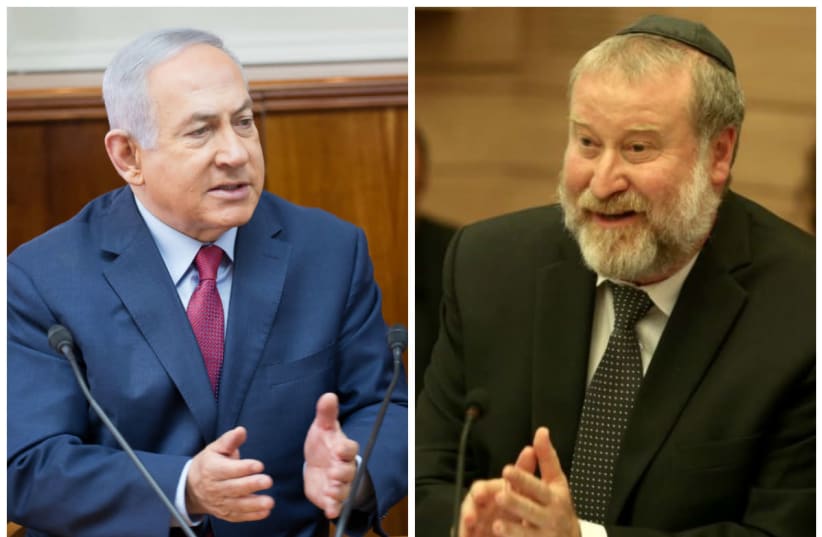Attorney-General Avichai Mandelblit told the High Court of Justice on Friday he would only give his opinion pre-election about whether Prime Minister Benjamin Netanyahu can form a government if the court confirms to him it intends to rule on the issue at this pre-election stage.
Although Mandelblit refused to take a definitive position, his remarkable legal opinion summarized both sides of the question on an issue that could determine the fate of the nation.
He summarized arguments both about whether the voters had a right to know the court’s decision pre-election or whether the very act of the court issuing an opinion pre-election would be an undue interference with voters’ right to choose.
All of this has come to a head following Mandelblit's own decision to issue an indictment against Netanyahu for bribery and other crimes on November 21.
However, there are disparate legal arguments about whether Netanyahu must resign in the near future because of the indictment, or whether he can stay in office until a future potential conviction and the exhaustion of all appeals.
Since that question itself is ambiguous, there is also a lack of clarity about whether the court must weigh in pre-election.
A group of hi-tech businessmen filed a petition earlier in December pressing the issue.
In response to that petition, Mandelblit said the complexity of the issue and the massive consequences it carried for the country mandated the High Court confirm it will decide the issue and by an expanded panel of between five to nine justices.
Typical High Court panels involve three justices, and expanded panels are reserved for issues of constitutional and historical significance to the country.
Second, by the very fact Mandelblit did not take the court’s initial order to give his opinion, and suggested the court had to effectively “convince” him it was going to determine the issue, he hinted it would be better for the judicial establishment to let the voters decide the issue.
He also said he would prefer that the court decide the issue without him having to weigh in at all, with the court being able to note that he effectively took a neutral stance on the question.
Supporting pushing off the decision, he noted a High Court decision from a 2006 petition against Tzachi Hanegbi in which the state told the court it should not weigh in pre-election as this would be seen as undue interference by the judicial branch with the will of the voters.
He added the High Court was being asked to make a declarative decision about something that was not yet concrete, which it usually prefers to avoid.
In other words, until a post-election scenario where Netanyahu already has the support of 61 MKs, deciding the issue can be viewed as premature.
In addition, the attorney-general said the question of who to give the mandate to for forming a new government was an issue where the country’s president has unusually-wide discretion.
This means it would be even more difficult to explain the High Court interfering with that discretion.
Also, Mandelblit noted the High Court had rejected parallel petitions on this issue by the Movement for the Quality of Government in Israel – though he acknowledged the current petition posed a harder question.
However, Mandelblit also put forward significant reasons for the High Court to weigh in imminently and pre-election.
He said if it turns out that Netanyahu comes out of the March 2 election with the support of 61 MKs, a High Court ruling at that late date disqualifying him could be disastrous.
Mandelblit noted all of the crucial legal facts to rule on the issue are already known, and leaving the average voter and the political class in the dark about Netanyahu’s status would be unfair.
Essentially, he said if the court were to disqualify Netanyahu, it needed to tell voters and the political class in advance of the election so they could adjust their votes and strategies accordingly, and not be caught blindsided after it was too late for them to adjust.
The attorney-general cited a famous High Court opinion from a few years ago, in which the court had fired three mayors because they were indicted but then allowed them to run for re-election, leaving the question of being elected to the voter.
In that case, the state’s position was that the High Court should decide the issue pre-election so there would be no cloud or ambiguity over the election results.
It is unclear how and when the High Court will rule
